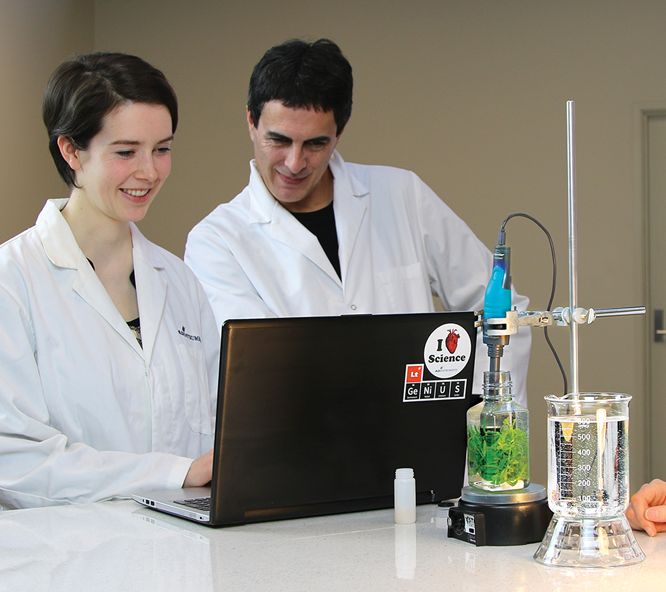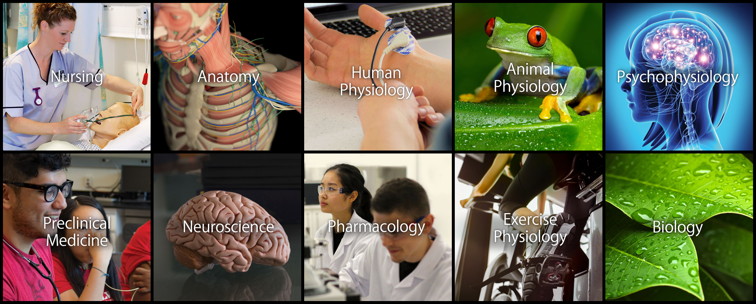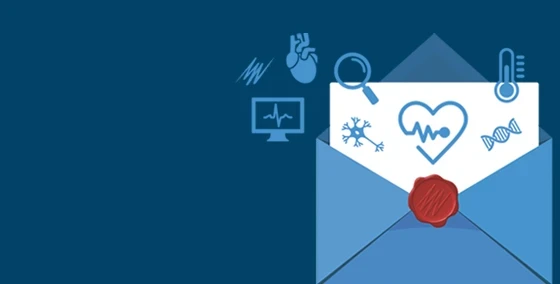

ADInstruments and Vernier have partnered to create the Lt Biology Collection which seeks to promote the six core competencies outlined in the American Association for the Advancement of Science’s Vision and Change report, for introductory biology courses.
Introductory biology courses have been "widely criticized for overemphasizing details and rote memorization of facts". This heavy emphasis on simply recalling facts lends support to the recommendations of the American Association for the Advancement of Science’s Vision and Change report (2011), and the need to promote higher-order thinking in the courses we present.
The Report found that the fact-heavy undergraduate biology curriculum would benefit from:
- focusing on broader concepts (for example, evolution) and using facts to illustrate those concepts, providing a framework for the field of biology, and
- ensuring students become capable biologists by providing them with authentic research experiences, thereby developing vocationally relevant skills.

In response to traditional lectures and laboratories, the report recommended that undergraduate students be taught in an active learning environment with opportunities to engage with the process of science.
Related: Encouraging higher-level thinking in introductory biology »
Designing curriculum for future scientists
As a scaffold for an improved curriculum, the Vision and Change report outlined five core concepts and six core competencies for undergraduate biology students.
The six core competencies are:
- Ability to apply the process of science
- Ability to use quantitative reasoning
- Ability to use modeling and simulation
- Ability to tap into the interdisciplinary nature of science
- Ability to communicate and collaborate with others
- Ability to understand the relationship between science and society
Integrating core competencies into undergraduate biology education
ADInstruments and Vernier have come together to create the Lt Biology Collection which seeks to incorporate these six core competencies. More recently, new labs have been developed in partnership with Bio-RadTM Laboratories.
This 34-lab collection seeks to address a wide range of popular introductory biology topics, including:
- Mitosis and Meiosis
- Enzyme Action
- Diffusion
- Limitations on Cell Size
- Photosynthesis
- PCR
- CRISPR
- Macromolecules
- Spectroscopy
- Microscopy
Related: Darwin Day and the Lt Biology Collection - Try Lt’s Population Genetics and Evolution lab! »

Idelisa Ayala, Associate Professor Biological Science, Broward College:
My students and I loved the Mitosis and Meiosis lab! All activities that my students did satisfied our learning objectives. The editing part was very easy and user-friendly. All my students were able to log in and complete the lab without any problem at all. Honestly, I wouldn’t change anything."
Encouraging scientific literacy
To promote scientific literacy, the Lt Biology Collection’s labs engage students in active learning, asking them to reflect on their prior knowledge (if any), predict outcomes, collect and analyze quantitative data, and draw appropriate conclusions based on evidence.
Where appropriate, attention has been drawn to real-world applications of scientific concepts, and certain labs contain extensions that allow students to pick their own research question and conduct a guided inquiry exercise.
The labs also allow groups of students to log in and work through the material together, encouraging collaboration. In remote scenarios, this workflow can be facilitated by any video or voice-calling software.
Learn more about Lt's Science Collections
Lt is our online learning platform with over 900 ready-to-use lessons and labs for teaching life sciences, chemistry, nursing, and medicine. Click on your teaching area below to learn more about Lt's existing collections!
Additional resources for educators:
Emergency Remote Teaching: moving introductory biology classes online during Covid-19 »
Keep calm and teach on: Teaching online during Covid-19 »
Future-proofing, fast: How Ed Merritt (Southwestern University) moved his lab-based course online »
10 Tips for Teaching Online – How to teach remotely and keep your students engaged »


